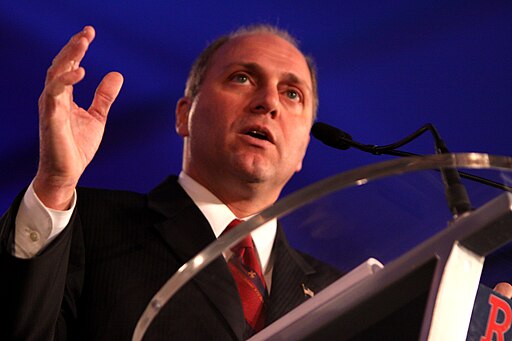In a recent development, Republicans have chosen Steve Scalise as their preferred choice for the next Speaker of the House of Representatives. However, questions remain about whether he has amassed sufficient backing to clinch an outright majority in the chamber.
Scalise, aged 58, edged out the prominent hardliner, Jim Jordan, in a confidential party vote on Wednesday. With this win, Scalise now faces the challenge of rallying a faction-ridden Republican party, particularly when the party holds only a narrow majority.
The actual date for the decisive House vote remains uncertain. To secure the coveted Speaker position, a simple majority of 217 votes is mandatory.
Victory for Scalise would terminate the ongoing deadlock in Congress’s lower chamber, which had its inception when Kevin McCarthy was dethroned by his own party’s hardline faction. Recent weeks witnessed intense internal disputes within the party, mainly over the selection of McCarthy’s successor.
Despite Scalise’s recent victory, the narrow margin of 113 to 99 votes underscores the profound divisions within the party. Several lawmakers are openly skeptical about his capability to gather the required votes for the position.
Prominent dissenters include Kentucky’s Thomas Massie, who cited budgetary disagreements as his reason for withholding support. Massie anticipates at least 20 other Republicans joining him in opposing Scalise, a number significantly exceeding the mere five dissenting votes Scalise can afford.
Other notable Republicans, such as Lauren Boebert, Marjorie Taylor Greene, and Anna Paulina Luna, have also expressed their reluctance to support Scalise. Texas’ Chip Roy expressed concerns about the hastened voting process.
In contrast to the flamboyant Jim Jordan, Scalise is perceived as a more conventional candidate. He has diligently climbed the GOP leadership ladder, established himself as an influential fundraiser, and sought to bridge ties with diverse party factions.
Addressing the press post-vote, Scalise emphasized the importance of filling the Speaker’s position amidst a tumultuous global scenario. He stressed the significance of ensuring the operational status of the House.

